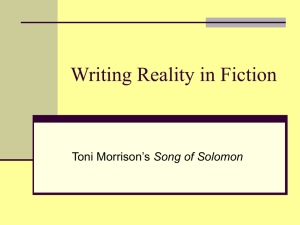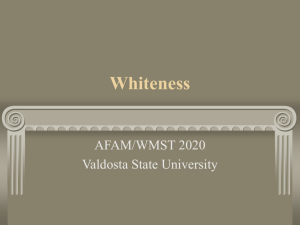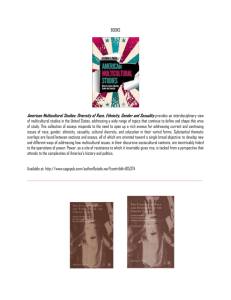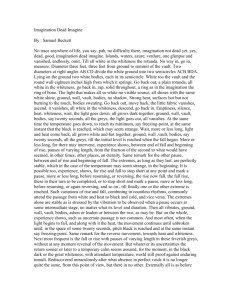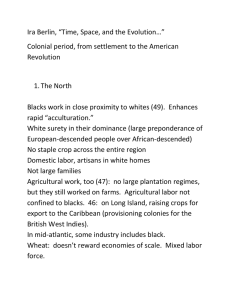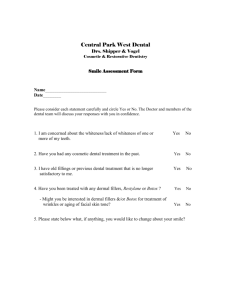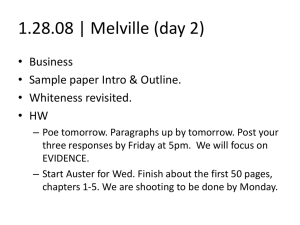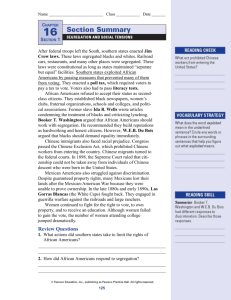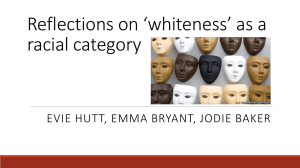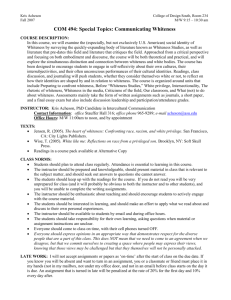Annotated Bibliography - Rhetoric and Composition
advertisement
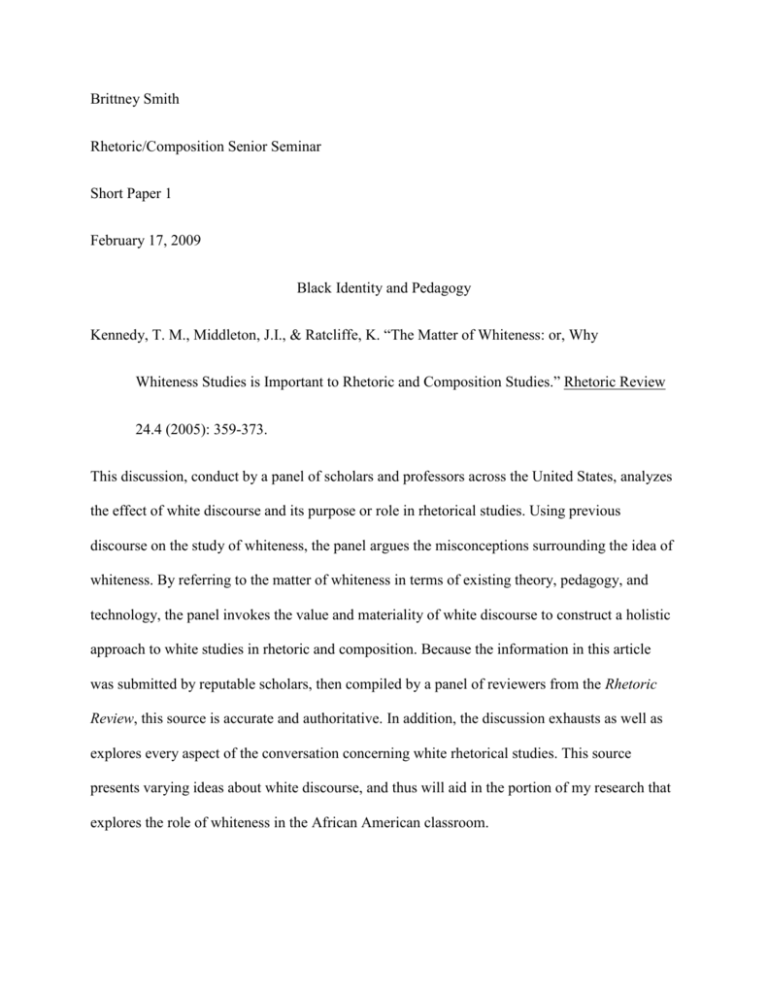
Brittney Smith Rhetoric/Composition Senior Seminar Short Paper 1 February 17, 2009 Black Identity and Pedagogy Kennedy, T. M., Middleton, J.I., & Ratcliffe, K. “The Matter of Whiteness: or, Why Whiteness Studies is Important to Rhetoric and Composition Studies.” Rhetoric Review 24.4 (2005): 359-373. This discussion, conduct by a panel of scholars and professors across the United States, analyzes the effect of white discourse and its purpose or role in rhetorical studies. Using previous discourse on the study of whiteness, the panel argues the misconceptions surrounding the idea of whiteness. By referring to the matter of whiteness in terms of existing theory, pedagogy, and technology, the panel invokes the value and materiality of white discourse to construct a holistic approach to white studies in rhetoric and composition. Because the information in this article was submitted by reputable scholars, then compiled by a panel of reviewers from the Rhetoric Review, this source is accurate and authoritative. In addition, the discussion exhausts as well as explores every aspect of the conversation concerning white rhetorical studies. This source presents varying ideas about white discourse, and thus will aid in the portion of my research that explores the role of whiteness in the African American classroom. Morrison, Toni. Playing in the Dark: Whiteness and the Literary Imagination. London: Vintage, 1993. Toni Morrison is a celebrated African American writer known for her racially insightful novels and staunch criticism of white canons in literature. In this book, Morrison explores the effects that racism has had on American writing and society. Morrison argues that the characterization of blacks in works by famous white authors like Edgar Allen Poe and Mark Twain has shaped the black identity. Morrison cites many sources such as articles and primary bodies to support her argument. This source is critical to my research due to its emphasis on white literature and its effect on black identity. Negative portrayals of African American through literature read in the classroom could be related to the way black students view themselves which could affect academic performance. Hooks, Bell. “Representing Whiteness in the Black Imagination.” Cultural Studies. Boston: South End Press, 1999. 338-46. Bell Hooks is a well-known and respected American writer and social activist. Her writings typically explore racial oppression in society. In the chapter nineteen, “Representing Whiteness in the Black Imagination,” of Cultural Studies, Hooks reveals the “profound psychological impact of white racist domination” on African Americans (346). Hooks also evaluates the perception of “sameness” that is subjected on blacks by whites. By offering a description of a typical heated classroom debate involving race, Hooks asserts that whites lack comprehension of the ethnographic gaze of blacks due to the invisibility of blacks to whites. Hooks claims that blacks cope with invisibility by pretending to be comfortable in the face of whiteness. Hooks argument will contribute to my research about black identity in relation to performance in the classroom because it provides socially subjugated psychological reasons for black underachievement. Lewis, C.W., James, M., Hancock, S. “Framing African American Students' Success and Failure in Urban Settings: a Typology For Change.” Urban Education 43.2 (2008): 127-153. This study was conducted by researchers from Texas A&M University and the University of North Carolina to explore the reasons for the success or failure of the African American student. By studying data recording the gap between white and black students as well as the Matrix of Achievement Paradigms, the article provides solutions to the dilemma of black academic underachievement. The extensive research methods used in this study will benefit my research concerning African American underachievement and its connection to contemporary pedagogy. MacCann, Donnarae. The White Supremacy Myth in Juvenile Books About Blacks. Michigan: U.M.I Dissertation Services, 1994. This document is a printed version of a submitted thesis created by Donnarae MacCann for the Doctor of Philosophy degree at the University of Iowa. In his thesis, MacCann contests the adequacy of children’s literature in the classroom. He argues that presence of the white supremacy myth in children’s literature has shaped American ideology. MacCann calls for pluralism in literature studied in the classroom to ensure multicultural learning. This document will be useful to my research because it relates to my argument that children’s identities or perceptions of themselves are shaped by the literature that they are exposed to in the classroom.

